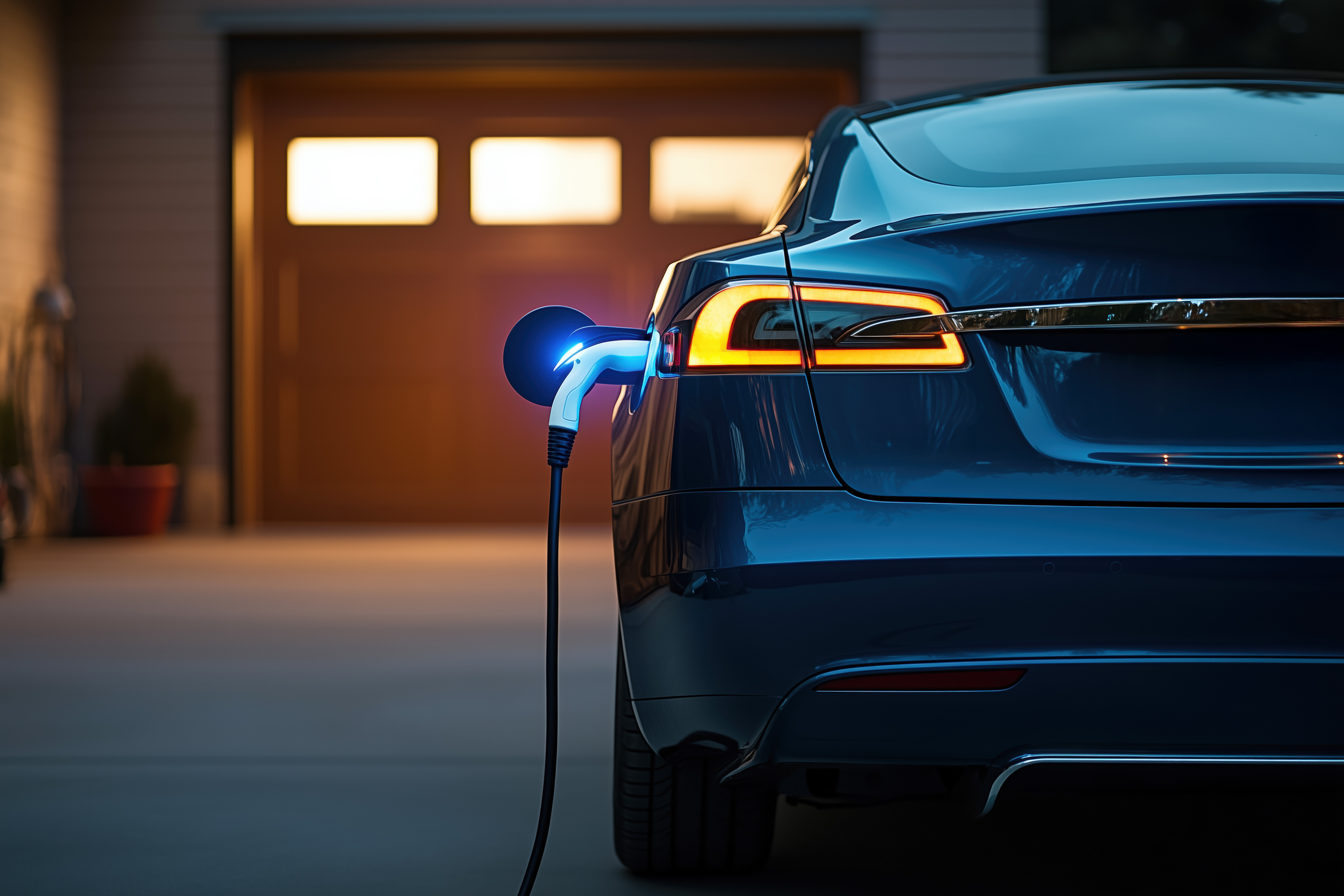As electric vehicles (EV) become more common, questions about energy consumption and cost implications become increasingly pertinent. How much electricity does an electric car use per month? Is charging an EV at home an affordable option? Understanding the answers to these questions can help potential and current EV owners make better-informed decisions.
{{CTA-EV-to-Solar}}
Estimating Your Monthly EV Charging Expenses
The journey begins with understanding your driving habits. According to the U.S. Department of Energy, the average American drives about 1,124 miles monthly. But how does it translate into electricity usage for an EV?
An EV typically receives about 3 to 4 miles per kWh of electricity. For simplicity, let's base our calculations on the lower end of that range to answer the question, “How much electricity does an electric car use on a monthly basis?”:
Deciphering the Costs
Now, let's move on to the cost to charge an EV. With the national average electricity cost sitting at approximately 16 cents per kWh, how does this affect your wallet?
This table breaks down the monthly charging cost based on the average electricity price and the typical monthly mileage.
What Does This Mean for You?
For the average American driver, charging an EV at home costs around $60 monthly. This calculation offers a starting point for understanding the financial benefits of switching to an electric vehicle, emphasizing the cost-effectiveness of home charging.
Please note that the above electric vehicle energy consumption calculations are estimates based on average driving distances and electricity prices. The actual costs vary depending on your driving patterns, the efficiency of your specific electric vehicle, and fluctuations in electricity prices. We encourage you to use these numbers as a general guide and consult with the Electricity Facts Label (EFL) for your residential electricity plan for the most accurate and current prices applicable to their situation.
Factors Influencing Electricity Consumption
An electric car’s monthly electricity consumption is influenced by several factors, including driving habits, vehicle efficiency, and charging methods. The amount of electricity an EV uses to charge largely depends on the car's battery capacity and the distance driven. For instance, frequent long-distance travel results in higher electricity usage compared to shorter daily commutes.
Driving Habits and Vehicle Efficiency
It may surprise you to learn that the answer to “How much electricity does an electric car use per month?” can largely depend on you. Aggressive driving, including rapid acceleration and high-speed cruising, can decrease an EV's efficiency, increasing the amount of electricity needed to recharge it. On the other hand, mindful driving practices such as gradual acceleration and regenerative braking can enhance battery performance.
Vehicle efficiency also plays a crucial role. Newer electric car models tend to be more energy-efficient, thanks to advancements in battery technology and aerodynamic designs. As a result, they require less electricity to travel the same distance as older models.
Charging Methods
The method of charging an electric car also affects electricity consumption. Level 1 charging, which utilizes a standard household outlet, is the slowest method but can be convenient for overnight charging. Level 2 charging, requiring a special charging station, is faster but may lead to slightly higher electricity use to accomplish this.
Comparing Electric Cars to Gasoline Vehicles
When comparing Electric Cars vs. Gas Cars, EVs tend to be more cost-effective in the long run. According to the Alternative Fuels Data Center, EV energy costs are generally more affordable than conventional vehicles, providing direct cost savings to EV owners.
Optimizing Electric Car Energy Consumption
Owners can optimize electric car energy consumption through several strategies:
- Charge the vehicle during off-peak hours to take advantage of lower electricity prices.
- Maintain a consistent and moderate driving style.
- Regularly service the vehicle to ensure battery and electrical systems operate efficiently.
Gexa Energy's Approach to Efficient EV Energy Management
At Gexa Energy, we're at the forefront of EV Charging Solutions and energy management. Our commitment to renewable energy drives us to offer guidance for EV owners. We're here to help you make the most of your electric vehicle by optimizing energy usage, reducing your monthly expenses and carbon footprint.
In this article, we've aimed to demystify the costs and benefits associated with electric vehicles, offering a blend of practical advice and insights into making the most of your EV. Whether you're a current EV owner or contemplating becoming one, understanding the interplay between vehicle efficiency, charging habits, and energy management can set you up for success.
For more guidance on this topic, read our article about How to Choose & Buy an Electric Car.






































